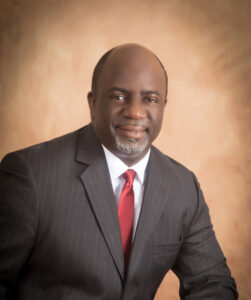 3 min read March 2023 — A college education is still the best investment anyone can make, according to Timothy Beard, president of Pasco-Hernando State College. “A college degree will probably earn graduates at least $1 million more over their career than high-school graduates,” he told Invest:.
3 min read March 2023 — A college education is still the best investment anyone can make, according to Timothy Beard, president of Pasco-Hernando State College. “A college degree will probably earn graduates at least $1 million more over their career than high-school graduates,” he told Invest:.
What are the key highlights and milestones for your institution over the last year?
We have had the best two years we’ve ever had legislatively in the 50-year history of this College. Our recurring dollars increased by 40% in the past two years. With the increase in funding, we’ve been able to do some things like give raises of between 10% and 20% to our employees. We’ve been able to allocate construction dollars to new facilities like the STEM Student Success and Community Engagement Center in Dade City. We have almost completed the design and are looking to break ground in the next few months. We also completed the 44,000-square-foot Instructional Performing Arts Center in 2020. We’ve had sold-out performances every month after COVID.
We held a $1 million fundraiser in September as part of the celebrations for our 50-year anniversary. Another highlight is the pathway to student success program, in which we partner with the high school system of Hernando County. Through the program, we are able to evaluate the families and students to see how we can be somewhat of a facilitator of a positive career trajectory for students who may not have college opportunities.
What strategies have been developed to avoid a decline in enrollment?
Like most higher-education institutions during the COVID years, enrollment decreased by between 20% and 25%. This fall semester and where we are now, we have been up probably close to 5% compared to last year. We found out that across the board in higher education a lot of students did not attend college. That trend has changed. One thing that we’re doing now is understanding the importance of online education. We now have more options, particularly in the hybrid modality. Close to 65% of our students are face-to-face and then 30% to 40% are online. The key enrollment strategy is to offer more options, including online and hybrid modalities.
What are students now expecting from their total college experience?
They want efficiency. They want to be able to look online for the course they want when they want it and pay what they want to pay for it. We offer around 250 different scholarships, although our tuition is already probably lower than the country’s average. There are also more models available for the workforce in higher education. This means those already participating in the workforce can upskill or gain new qualifications. We have to be more assertive, making sure our online technologies are right for students to take advantage of the education opportunities.
How do you evaluate college education as an investment?
All the research is going to show that a college degree will probably earn graduates at least $1 million more over their career than high-school graduates. A master’s degree will also increase the percentage of what you earn. Higher education will help you make more money if that’s your goal, so this is still the best investment, with a worthwhile payoff. I still think a college education is one of the best investments that anybody can make.
The workforce and STEM areas are still the main focus of a college particularly for state colleges like PHSC so there is high demand for construction management professionals. But we still need nurses, plumbers and welders. I believe we still need our universities for research, we also need our universities to diversify into niche professions. We need to make sure the balance is there. That balance has been absent over the past 10 to 15 years and we are now trying to catch up.
What are the biggest challenges that you are facing?
Five years ago, I would have said finances. I can’t say that anymore. I think even though we had the pandemic, the state has continued to grow economically, and the federal government has given us a lot of resources that we need. The challenge now is a lack of talent. We used to have 30 applications for a position in nursing. Now, five is positive. And this is across the board in all positions. The talent drain is being felt not just in vocational jobs, but it’s also in education as well.
For more information, visit:
